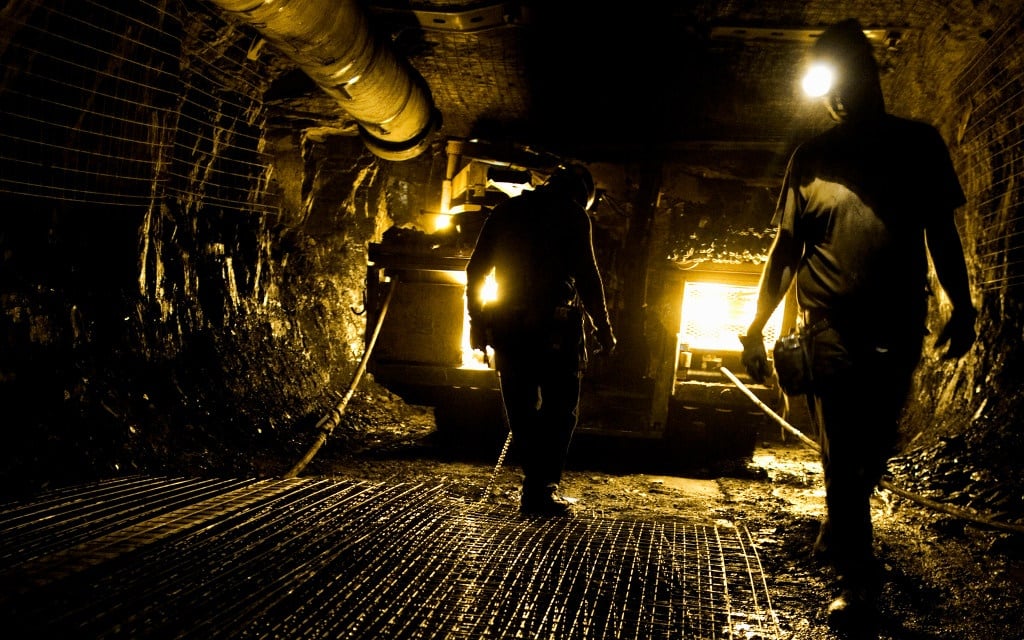


Afrimat started off as a construction and building materials supplier, but diversification has paid off.
- Construction has declined by 4.7% in the first quarter.
- However, despite the dire straits of the sector, iron ore continues to bolster Afrimat as its diversification strategy pays off.
- Afrimat plans to add Unicorn Capital partners to its list of businesses.
Diversifying beyond construction has proven to be a winning formula for open pit mining company Afrimat, as the already limping construction industry battles to survive Covid-19.
Afrimat’s history dates back to the 1960s, when two companies, Prima and Lancaster, were established. Afrimat was formed from their merger in 2003.
Since then, the company, which started off as a construction and building materials supplier, has grown to become a diversified company, adding commodities through its iron ore operations and industrial minerals with its steel, dolomite and lime products business.
- READ| SA’s mining production shrinks for May
Ten years later, and in the middle of a global health crisis, Afrimat’s first move to diversify, which was in commodities, has proven to be a major boon.
“At the moment, the iron ore industry is doing exceptionally well. We have a very good iron ore price. Last week the iron ore price was in excess of $110 a ton for the entire week,” said Afrimat CEO Andries van Heerden on Monday.
Van Heerden said Afrimat’s construction materials business did not have an income in April during the hard lockdown at alert Level 5. But because of its bulk commodities segment, which consists of its iron ore business from its Demaneng iron ore mine, the company was able to keep its staff employed during the “painful” time.
The company’s results for the year ended 29 February show that its earnings rose by 48%. The bulk commodities segment saw its operating profit increase by more than 59%.
Afrimat’s share price, meanwhile, has increased by more than 62% in the last five years.
“We are very grateful. I think we are one of the very small group of companies that are actually doing reasonably well, with good cash flow, we’ve got no debt on the balance sheet. So the business is in a very healthy position,” he said.
The company is also finalising a deal to acquire Unicorn Capital Partners, whose main business is an anthracite mine in Mpumalanga.
Afrimat currently owns 27% of the company.
South Africa’s construction industry has shown a decline of 4.7% in the first quarter of this year, its seventh consecutive quarter of economic decline, according to Statistics SA.
The industry’s poor performance comes on the back of South Africa’s GDP fall of 2%, also in the first quarter.
- READ | Christo Wiese’s Invicta plans to sell four businesses for R607 million to cut debt
Construction giant Basil Read has become an example of the impact of South Africa’s low growth on the industry, going into voluntary business rescue in 2018 after reporting a loss of R1 billion for 2017.
Competitors have also felt the impact of projects drying up, with Group Five and Esor going into business rescue and delisting from the JSE.
Van Heerden said the companies found themselves in trouble, with full order books that have since been taken over by smaller companies, which he said are seeing “abnormally high demand” as they scramble to catch up with work during the Level 3 lockdown.
In his State of the Nation address this year, President Cyril Ramphosa announced that the South Africa will embark on infrastructure projects to which government and non-government investors will contribute more than R700 billion over the next 10 years.
Last month, Ramaphosa announced that there are 276 infrastructure projects in the pipeline.
- READ |Ramaphosa: SA has secured billions in ‘firm’ funding commitments for infrastructure
The projects would be a lifeline for the country’s ailing construction sector, but Van Heerden said this is only possible if the projects are ultimately set in motion.
“I think we’ve become very good at talking, maybe we should just shut up and do the work,” he said.
He said instead of announcing that there were shovel-ready projects, the government should issue tenders for the jobs and have construction companies start working on them.
Van Heerden said keeping it simple and focusing on jobs like roadworks was crucial to turning the sector around and creating employment.
Jay Vomacka, a portfolio manager at Aeon Investment Management said: “They’ve [Afrimat] done well because they managed to diversify their business away from aggregates only. And they are basically a diversified junior miner and that started with their foray into iron ore.”
Vomacka described the company as well run and nimble without the past legacy construction issues that the construction industry has [faced].
He said establishing itself as a niche supplier the construction has worked out well since companies usually approach Afrimat when they have a building project.

